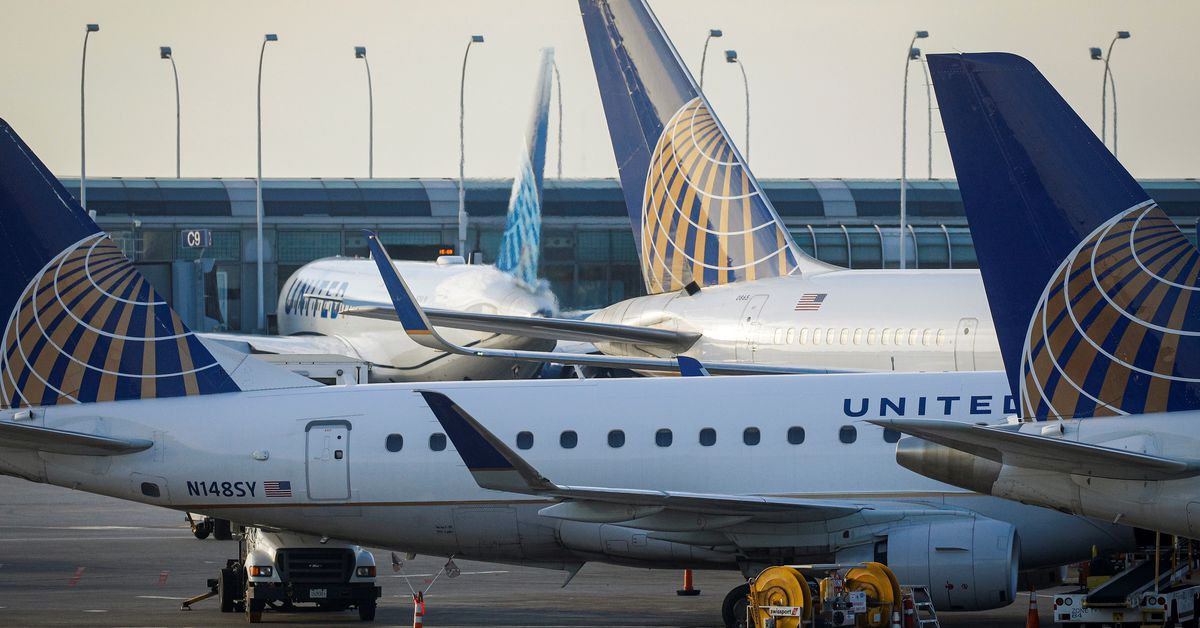Sept 7 (Reuters) – United Airlines Holdings Inc (UAL.O) and American Airlines Group Inc (AAL.O) on Wednesday tried to allay concerns about consumer demand, saying there has been no slowdown in post-summer travel bookings.
U.S. carriers have been witnessing the strongest travel demand since the pandemic. Over the four-day Labor Day weekend, 8.76 million passengers made their way through U.S. Transportation Security Agency (TSA) checkpoints, surpassing 2019 levels. read more
The travel demand, however, tends to cool down after Labor Day, which traditionally marks the end of the U.S. summer. With children returning to school, family vacations typically slow down, leaving carriers mostly reliant on business travelers.
Register now for FREE unlimited access to Reuters.com
Patrick Quayle, senior vice President at United Airlines, told Cowen’s annual transportation conference that travel bookings, thus far, have defied that historical trend as there has been no drop off in ticket sales between August and September.
“It does not appear that summer has come to an end,” he said. “It’s that strong.”
Encouraged by “a strong demand environment,” the Chicago-based carrier on Wednesday revised up its revenue estimate for the current quarter. It now expects total operating revenue in the quarter through September to be up 12% from the same period in 2019, up from a prior forecast of 11%.
United also lifted the forecast for adjusted operating margin on the back of improvements in non-fuel operating costs.
American Airlines Chief Executive Robert Isom, who also spoke at the conference, said leisure bookings are holding up “strong.”
“We continue to see revenue and expense and margins tracking as we expected,” Isom said. “That’s good news.”
Shares of United Airlines were up 3.75% at $37.93 in afternoon trade, while those of American were up 2.8% at $13.59.
The airline industry, which is facing soaring fuel and wage bills, has been relying on strong consumer demand to mitigate inflationary pressure with higher fares.
But investors and analysts are not sure carriers will have the same pricing power once consumer demand slows down. Adding to the worry, corporate travel – the industry’s cash cow – has not recovered to the pre-pandemic levels.
Isom said American’s revenue from corporate bookings has recovered to just 75% of 2019 levels. United’s Quayle said while corporate bookings are still below the pre-pandemic level, higher ticket prices have driven up revenue from business travel.
As companies call their employees back to office, the two carriers expect further improvements in corporate bookings. In the meantime, they are counting on a sustained recovery in international travel demand.
Isom said American’s transatlantic revenue has exceeded 2019 levels. United is seeing robust demand in Asia Pacific as well.
“Whenever countries reduce the entry requirements or eliminate entry requirements, we see really, really robust demand,” Quayle said.
Register now for FREE unlimited access to Reuters.com
Reporting by Rajesh Kumar Singh in Chicago and Aishwarya Nair in Bengaluru
Editing by Nick Zieminski
Our Standards: The Thomson Reuters Trust Principles.





